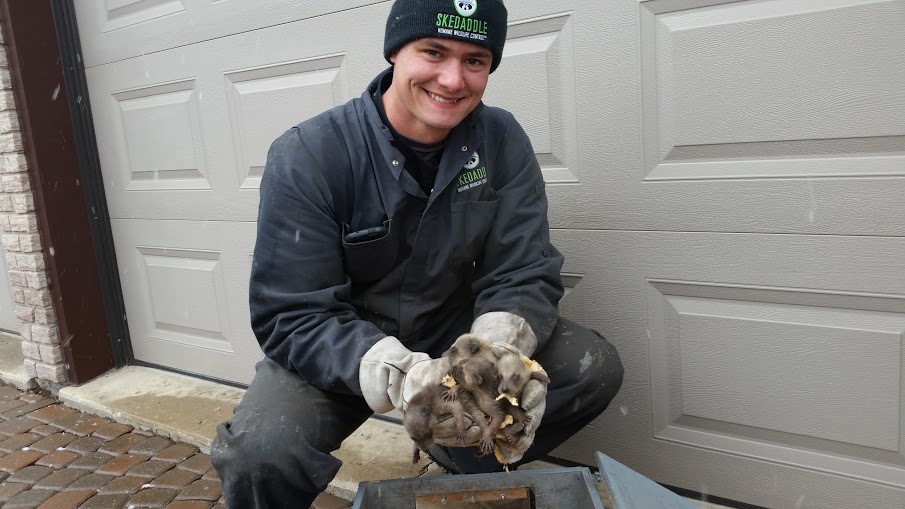One of the reasons why raccoon removal is so important if you find wild animals on your property is that they may be sick with a disease such as rabies or distemper. Abnormal behaviour in a raccoon could mean that the animal is sick, and you should report it to the appropriate authorities right away. If the raccoon has distemper, your pets could be at risk, and both you and your pets could be in danger if the raccoon is infected with rabies.
How Are Rabies and Distemper Similar and Different?
Rabies and distemper are both viral infections that can infect animals such as raccoons. Rabies is almost invariably fatal and can affect humans as well as animals. While pets such as dogs and cats can be vaccinated against distemper, and treated for it if necessary, most wild animals that contract distemper will eventually die from it. Humans aren’t affected.
The rabies virus specifically attacks the brain and spinal cord, meaning that the symptoms tend to be neurological in nature. Distemper attacks multiple systems of the body, such as the respiratory and gastrointestinal systems, so the symptomatology is typically different, especially at first.
What Are the Symptoms of Rabies and Distemper?
At one point, rabies was also known as hydrophobia because animals infected with it refused to drink water and became dehydrated as a result. Rabies also causes excess saliva production, causing infected animals to foam at the mouth.
Rabies causes inflammation of the brain and the membranes that protect the central nervous system, also known as meninges. The agitation can cause physical symptoms of fever and headache. It can also cause confusion, agitation, anxiety, and hallucinations. An infected animal may react to these by becoming unusually aggressive. A rabid animal can also go into a coma or become paralyzed.
A case of distemper starts out similar to an upper respiratory complaint, with symptoms of coughing, discharge from the nose or eyes, fever, loss of appetite, vomiting, diarrhea, and lethargy. Unlike with rabies, an infected animal may experience excessive thirst and drink an abnormally large amount of water. Eventually, the infected animal may have trouble breathing, its footpads and nose may become hard, and it may have seizures. In the later stages, distemper can cause confusion and abnormal behaviour, which may appear similar to symptoms of rabies.
How Do Rabies and Distemper Spread?
Rabies typically spreads when the saliva of an infected animal enters the bloodstream of a healthy animal from a bite. Distemper can spread this way too, but it can also spread through skin contact, exposure to the feces of an infected animal, or airborne droplets. You can protect your pets by having them vaccinated against distemper and rabies.
What Should You Do if You See a Raccoon Behaving Strangely?
Abnormal behaviour may indicate to you that the raccoon is sick, but you cannot tell just by looking whether it has rabies or distemper. Raccoons are strong, with sharp claws and teeth, and even a healthy raccoon is likely to bite and scratch in self-defence if cornered. Therefore, you should never try to handle or approach a raccoon under any circumstances. If it seems sick, you should call your local animal control or SPCA chapter. Both rabies and distemper cause extreme suffering for infected animals, and treating them isn’t possible. Euthanizing the animals is the only way to end their suffering and prevent the spread of the disease to other animals. Only qualified professionals can perform euthanasia.
Call Skedaddle for Raccoon Removal From Your Home
The advice not to try to handle a raccoon to remove it from your home holds true even if it doesn’t appear to be sick. A healthy raccoon can still cause serious injury by biting and scratching. Learn more about the services we offer related to wildlife control in Kitchener.



